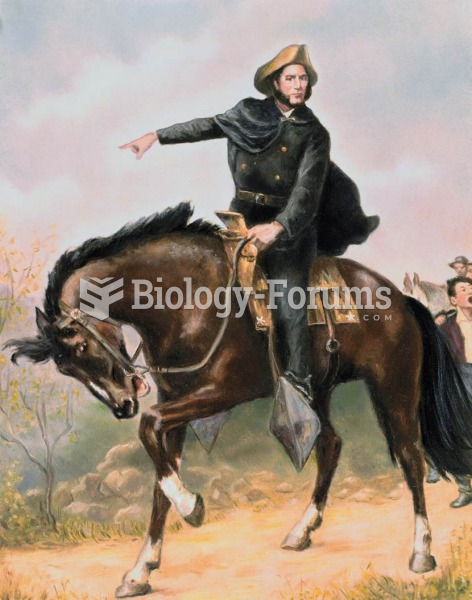|
|
|
Urine turns bright yellow if larger than normal amounts of certain substances are consumed; one of these substances is asparagus.
Earwax has antimicrobial properties that reduce the viability of bacteria and fungus in the human ear.
Automated pill dispensing systems have alarms to alert patients when the correct dosing time has arrived. Most systems work with many varieties of medications, so patients who are taking a variety of drugs can still be in control of their dose regimen.
There are major differences in the metabolism of morphine and the illegal drug heroin. Morphine mostly produces its CNS effects through m-receptors, and at k- and d-receptors. Heroin has a slight affinity for opiate receptors. Most of its actions are due to metabolism to active metabolites (6-acetylmorphine, morphine, and morphine-6-glucuronide).
Hippocrates noted that blood separates into four differently colored liquids when removed from the body and examined: a pure red liquid mixed with white liquid material with a yellow-colored froth at the top and a black substance that settles underneath; he named these the four humors (for blood, phlegm, yellow bile, and black bile).
 Weedy Seadragon, Phyllopteryx taeniolatus, from the Sketchbook of fishes by William Buelow Gould, 18
Weedy Seadragon, Phyllopteryx taeniolatus, from the Sketchbook of fishes by William Buelow Gould, 18
 Sam Houston—and his horse—earned this heroic tribute. At the Battle of San Jacinto, a musket ball sh
Sam Houston—and his horse—earned this heroic tribute. At the Battle of San Jacinto, a musket ball sh





